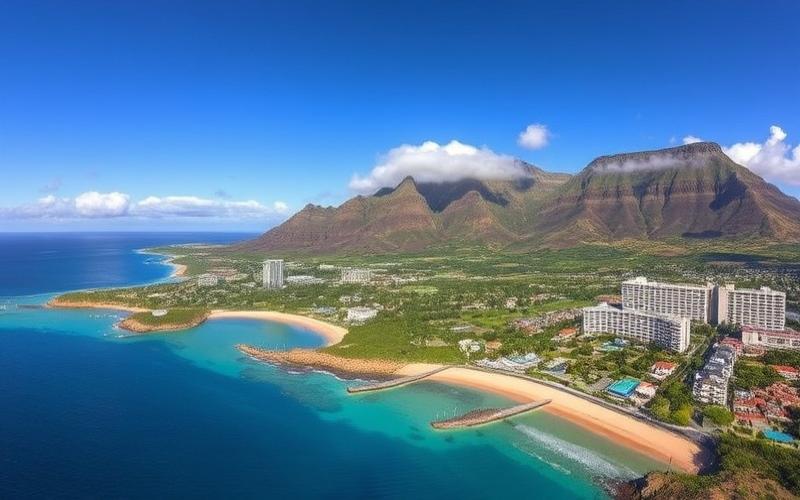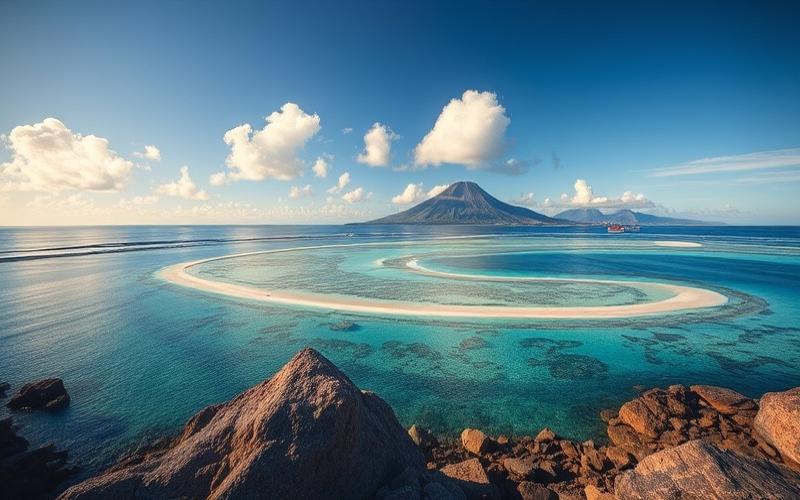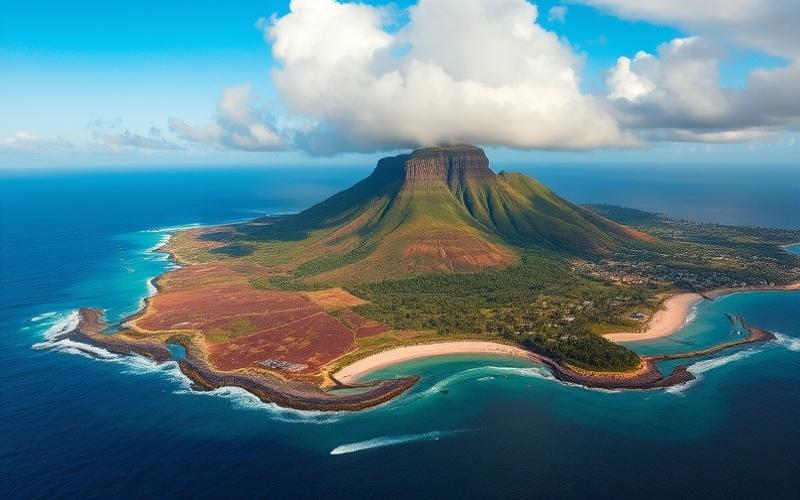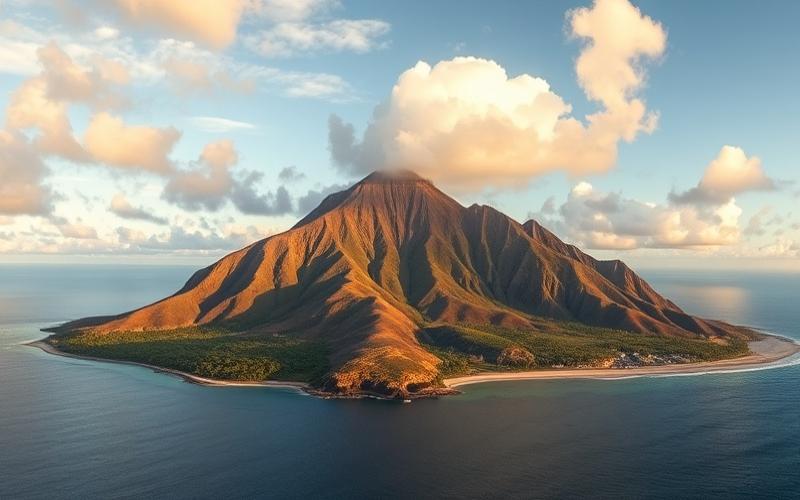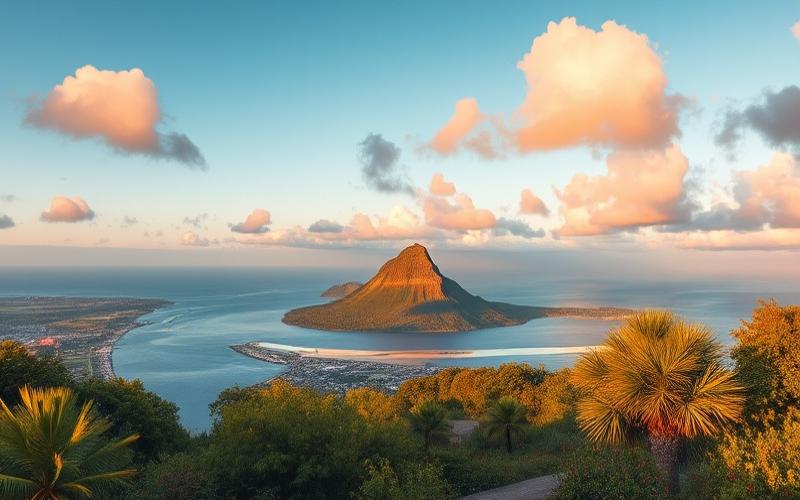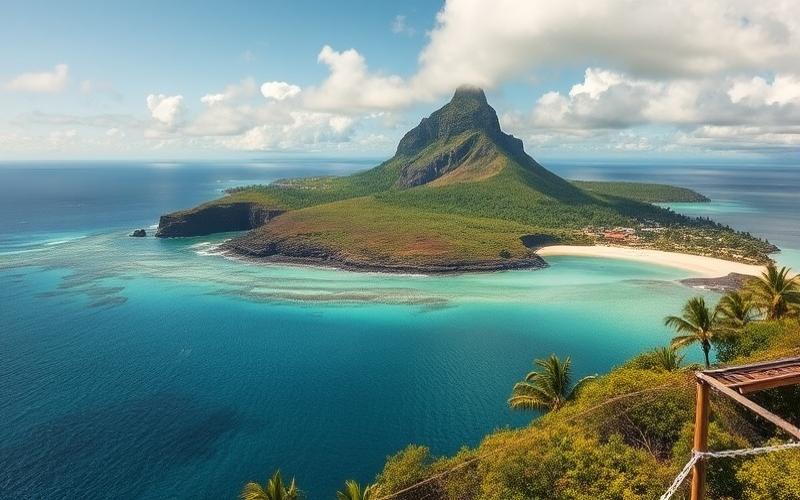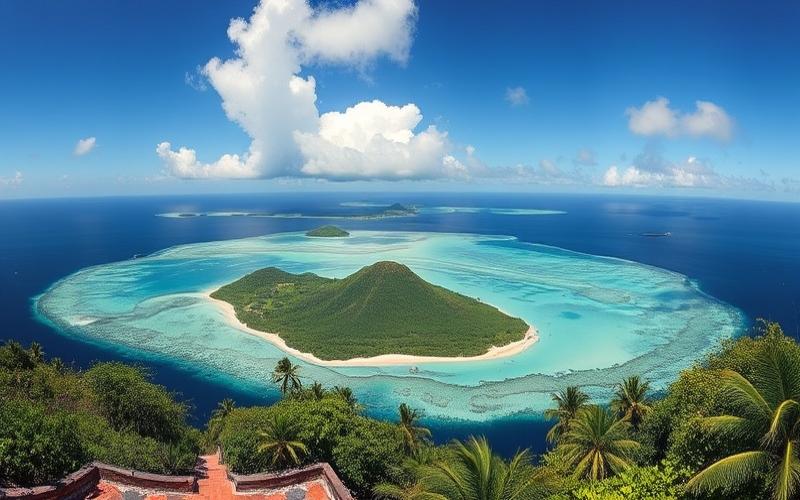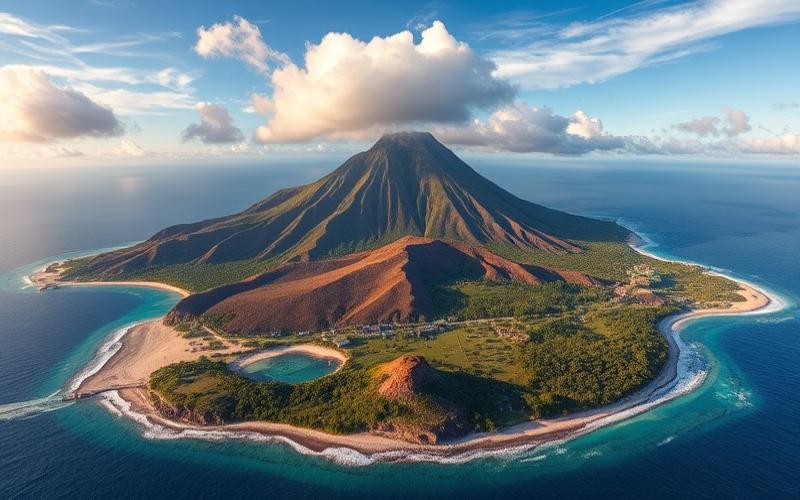
 Published on and written by Cyril Jarnias
Published on and written by Cyril Jarnias
Mauritius, a jewel of the Indian Ocean, attracts many expatriates each year in search of an idyllic living environment and enticing professional opportunities. However, like any relocation, moving to Mauritius comes with its share of advantages and disadvantages. Let’s dive into the various facets of expat life on this paradise island, examining the economic, cultural, and personal aspects of this unique experience.
A Tax Haven: The Economic Benefits of Mauritius
One of the main attractions of Mauritius for expatriates lies in its advantageous tax system and favorable economic environment. This small Indian Ocean country has positioned itself as a prime destination for international investors and professionals.
An attractive tax regime
Mauritius is recognized for its tax regime that’s particularly favorable to expatriates and businesses. The country offers a flat tax rate of 15% on income, whether from salaries, rental income, or business profits. This advantageous taxation allows expatriates to keep a larger portion of their income compared to many other countries.
Furthermore, Mauritius has signed tax treaties with many countries, thus avoiding double taxation for foreign residents. This aspect is particularly interesting for retirees receiving pensions from their home country, as they can benefit from reduced or even zero taxation on this income.
An advantageous cost of living
Despite its status as a high-end destination, Mauritius offers a relatively affordable cost of living compared to many Western countries. Expatriates can enjoy a high standard of living at a lower cost than in their home country, particularly regarding housing, food, and services.
For example, renting a three-bedroom apartment in a residential neighborhood of Port Louis, the capital, costs on average 30% to 40% less than in a major European city. Local products, tropical fruits and vegetables, are also very affordable, allowing expatriates to enjoy healthy and varied food without breaking the bank.
Diverse professional opportunities
The Mauritian economy, constantly evolving, offers numerous professional opportunities for qualified expatriates. The country has developed key sectors such as financial services, information technology, luxury tourism, and renewable energy, creating a dynamic and diverse job market.
International companies based in Mauritius are often looking for experienced and multilingual profiles, thus offering interesting career prospects for expatriates. Additionally, the Mauritian government has implemented policies favorable to entrepreneurship, facilitating business creation by foreigners.
Good to know:
Mauritius offers an attractive economic environment for expatriates, combining advantageous taxation, an affordable cost of living, and varied professional opportunities. These benefits allow foreigners to enjoy a high standard of living while optimizing their financial situation.
Beyond the Clichés: The Cultural Challenges of Relocating to Mauritius
While Mauritius is often perceived as an easy-going tropical paradise, the reality of expatriation on this multicultural island can hold some surprises. Cultural challenges are very present and require adaptation and open-mindedness from newcomers.
A complex multicultural society
Mauritius is famous for its cultural diversity, stemming from its history and multiple influences. This richness, while fascinating, can sometimes be a source of complexity for expatriates. Mauritian society is composed of different communities (Indo-Mauritian, Creole, Sino-Mauritian, Franco-Mauritian), each with its own traditions, customs, and sometimes even its own language.
This diversity is reflected in all aspects of daily life, from cuisine to religious festivals and social codes. For an expatriate, navigating this cultural mosaic can be tricky, requiring great adaptability and a willingness to learn and understand the subtleties of each community.
The language barrier
Although French and English are widely spoken in Mauritius, particularly in professional and tourist circles, the main language of daily communication remains Mauritian Creole. This language, a mix of French, English, Malagasy, and other Indian languages, can pose a real challenge for expatriates.
Not mastering Creole can create some distance from the local population and limit social interactions outside professional or expatriate circles. Learning Creole, even at a basic level, is therefore highly recommended for better integration and a more authentic experience of Mauritian life.
The pace of life and local habits
The famous “island time” is not a myth in Mauritius. The slower, more relaxed pace of life can be a source of frustration for expatriates accustomed to a faster, more structured lifestyle. Delays, approximate appointments, or sometimes slow administrative processes can test the patience of newcomers.
Furthermore, certain local habits can be surprising, such as the closure of many shops on Sundays, different working hours (often from 8 AM to 4 PM), or the importance placed on personal relationships in the professional world. Adapting to this pace and these practices takes time and flexibility.
Good to know:
Cultural adaptation in Mauritius requires open-mindedness, patience, and a willingness to learn. The island’s multicultural richness, although sometimes complex to grasp, offers a unique and enriching experience for expatriates ready to immerse themselves in the local culture.
Personal Transformation: The Impact of Mauritian Expatriation on Your Life
Relocating to Mauritius is not just a simple change of residence. It can have a profound impact on personal life, transforming how one perceives the world and oneself. This experience, both enriching and sometimes destabilizing, inevitably shapes the life journey of expatriates.
An exceptional living environment
One of the most positive aspects of relocating to Mauritius is undoubtedly the exceptional quality of life the island offers. The white sand beaches, turquoise lagoons, and lush vegetation create an environment conducive to relaxation and well-being. This idyllic setting allows expatriates to enjoy a more balanced lifestyle, giving significant importance to leisure and nature.
Outdoor activities are plentiful: diving, kitesurfing, hiking in national parks, golf on world-renowned courses… This proximity to nature and varied leisure opportunities greatly contribute to improving the quality of life and overall well-being of expatriates.
The challenge of distance
Despite its many assets, relocating to Mauritius can also be a source of personal difficulties. The geographical distance from family and friends left in the home country can create a feeling of isolation, particularly during the first years of settlement.
Time zone differences and the cost of travel can complicate maintaining ties with loved ones. This situation can be particularly difficult during important events (births, weddings, deaths) where the distance is painfully felt.
A new perspective on life
Relocating to Mauritius offers the opportunity to question one’s values and priorities. The more relaxed pace of life and the importance given to human relationships in Mauritian culture often lead expatriates to reconsider their relationship with work, time, and social connections.
This experience can lead to significant personal development, fostering open-mindedness, tolerance, and adaptability. Expatriates often develop new skills, both professionally and personally, thus enriching their life journey.
The challenge of social integration
Although Mauritians are known for their warm welcome, social integration can represent a challenge for expatriates. Creating a new social circle takes time and effort, especially since local communities are often very close-knit.
Expatriates can sometimes feel on the margins of Mauritian society, moving mainly in circles of other expatriates. Overcoming this barrier and building authentic connections with the local population requires an active willingness to get involved in community life and adopt certain aspects of Mauritian culture.
Good to know:
Relocating to Mauritius offers a unique opportunity for personal transformation, combining an exceptional living environment with challenges that push for personal development. This experience, although sometimes difficult, can prove extremely enriching for those who fully embrace this new life.
Conclusion: A Unique Adventure to Seize with Discernment
Relocating to Mauritius represents an exceptional opportunity for those seeking to combine quality of life, economic benefits, and cultural discovery. The island’s assets are numerous: a paradise-like living environment, an advantageous tax regime, an affordable cost of living, and interesting professional opportunities. These advantages make Mauritius a prime destination for expatriates seeking a fresh start in the tropics.
However, like any relocation, settling in Mauritius also comes with its share of challenges. Adapting to a complex multicultural society, the language barrier of Creole, and distance from loved ones are all aspects to consider. These challenges, although sometimes difficult, also offer the opportunity for significant personal growth, fostering open-mindedness and adaptability.
The key to a successful relocation in Mauritius lies in preparation and mindset. Thorough research, openness to local culture, and a willingness to integrate are essential. It’s also important to carefully weigh the advantages and disadvantages based on one’s personal and professional situation.
For those who take the plunge, relocating to Mauritius can prove to be a transformative experience, offering not only an exceptional living environment but also the opportunity to redefine priorities and live an enriching cultural adventure.
Ultimately, choosing to relocate to Mauritius means opting for a life where sun, sea, and cultural diversity blend with attractive professional and economic opportunities. It’s a decision that requires reflection and preparation, but one that can pave the way for an exciting and fulfilling new phase of life.
Disclaimer: The information provided on this website is for informational purposes only and does not constitute financial, legal, or professional advice. We encourage you to consult qualified experts before making any investment, real estate, or expatriation decisions. Although we strive to maintain up-to-date and accurate information, we do not guarantee the completeness, accuracy, or timeliness of the proposed content. As investment and expatriation involve risks, we disclaim any liability for potential losses or damages arising from the use of this site. Your use of this site confirms your acceptance of these terms and your understanding of the associated risks.

